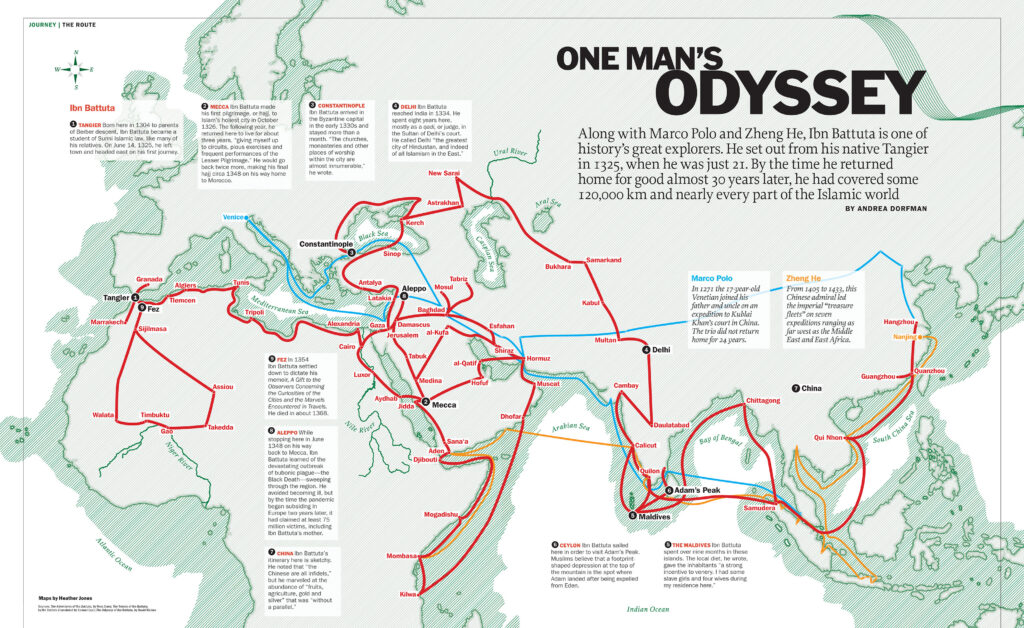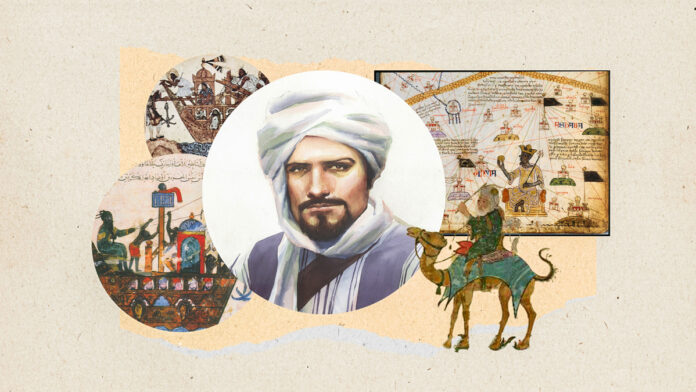The title of “history’s most famous traveler” is often bestowed upon Marco Polo, the renowned Venetian explorer who ventured to China in the 13th century. However, when it comes to sheer distance covered, the Muslim scholar Ibn Battuta outpaces Polo. Despite being relatively obscure outside the Islamic world, Battuta spent half his life journeying across vast expanses of the Eastern Hemisphere.

Embarking on his odyssey at the age of 21, Battuta, born in Tangier, Morocco, initially set out on a pilgrimage to Mecca. This sacred journey, however, transformed into a remarkable three-decade expedition, far beyond the customary bounds of pilgrimage.
Battuta, distinguished by his scholarly background in Islamic law, traveled not as a mere wanderer but as an erudite explorer. His academic expertise provided a unique perspective as he navigated the Islamic world, engaging with scholars, rulers, and the ordinary people who formed the social tapestry.
The travelogue, named “Rihla” or Journey, authored by Battuta, serves as an invaluable lens into the diverse societies he encountered. From the vibrant markets of Cairo to the courtly intrigues in Delhi, his keen observations vividly portray life in the 14th century, unraveling the social structures, customs, and governance of the time.
Trade, a recurring theme in Battuta’s travels, unveils the intricacies of flourishing trade routes, emphasizing the interconnectedness of regions through commerce. Whether in the bustling markets of North Africa or the maritime trade of the Indian Ocean, Battuta recognized the economic pulse resonating across continents.
Marveling at the kaleidoscope of cultures within the Islamic world, Battuta encountered diverse ethnicities, languages, and traditions, highlighting the cosmopolitan nature of the societies he visited. Amidst this diversity, he discerned a common thread binding humanity together.
The journey was not without perils—treacherous terrains, political unrest, and encounters with bandits tested Battuta’s resilience. His writings bear witness to the risks and hardships associated with long-distance travel in an era preceding modern conveniences.
As a devout Muslim, Battuta paid meticulous attention to religious practices and institutions, offering valuable insights into the variations in Islamic traditions and the role of religion in different societies.
Battuta’s enduring legacy lies in his travelogue, a classic work of medieval travel literature that inspires historians, anthropologists, and scholars to explore the interconnectedness of societies in the 14th century and beyond.
In conclusion, Ibn Battuta’s odyssey stands as a testament to the indomitable spirit of exploration and intellectual curiosity. His meticulous observations allow readers to traverse continents alongside him, gaining a profound appreciation for the shared history and diversity defining humanity. Battuta’s journey echoes through the ages, beckoning us to explore, understand, and celebrate the interconnectedness that has shaped our world.

